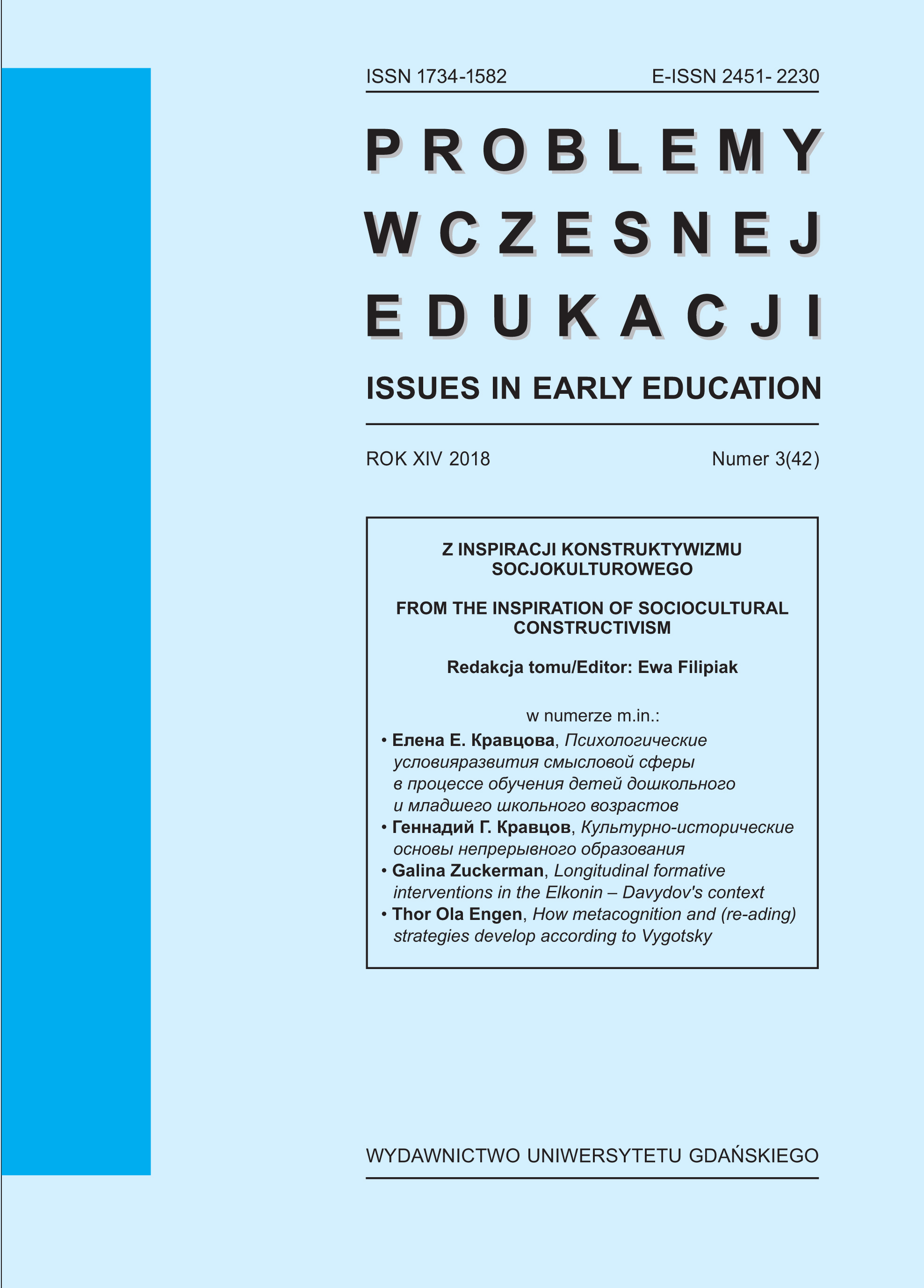The power of dialogue and discovery
DOI:
https://doi.org/10.26881/pwe.2018.42.12Słowa kluczowe:
dialogic teaching, growth mindset, modern practices in early childhood mathematics education, students’ voicesAbstrakt
Greater emphasis must be placed on activities that promote innovative teaching methods in early childhood mathematics education in Poland. Our classrooms offer algorithmic and rote teaching methods, depriving students of important elements of successful mathematics learning. The aim of this action research was to investigate the relationship between a classroom environment that allows for dialogue and discovery and young children’s input into problem solving. Teaching six classes of elementary school within one academic year gave the author the opportunity to examine how dialogic teaching combined with a growth mindset approach can transform the attainment of knowledge, understanding and skills of learners, and how modern practices like number talks, solving open-ended tasks and group work can unleash students’ potential and activate them as thinkers and reasoners. The results confirmed that students who are challenged and offered concept-based learning opportunities not only genuinely engage in their tasks, but also help each other with deeper understanding of the concepts. They can cooperate with teachers in the creation of a new classroom in which students’ voices are heard and discoveries take place.
Downloads
Bibliografia
Alexander R.J. (2017), Towards Dialogic Teaching: Rethinking Classroom Talk. York, Dialogos.
Boaler J. (2016), Mathematical Mindsets: Unleashing Students Potential through Creative Math, Inspiring Messages, and Innovative Teaching. San Francisco, Jossey-Bass & Pfeiffer Imprints.
Dąbrowski M. (2013), (Za) trudne, bo trzeba myśleć. Warszawa, Instytut Badań Edukacyjnych.
Dweck C.S. (2017), Mindset: Changing the Way You Think to Fulfil Your Potential. London, Robinson.
Gershon M. (2016), How to Develop Growth Mindsets in the Classroom: The Complete Guide. CreateSpace Independent Publishing Platform.
Humphreys C. and Parker R. (2015), Making Number Talks Matter Developing Mathematical Practices and Deepening Understanding, Grades 4–10. Portland, Stenhouse Publishers.
Lakatos I. et al. (1976), Proofs and Refutations: The Logic of Mathematical Discovery. Cambridge, Cambridge University Press.
Pehkonen E. (1999), Open-ended Problems: A method for an educational change. Proceedings of International Symposium on Elementary Maths Teaching. Prague, Charles University: SEMT 99.
Pólya G. (1988), How to Solve It: A New Aspect of Mathematical Method. Princeton, Princeton Univ. Press.

 Uniwersyteckie Czasopisma Naukowe
Uniwersyteckie Czasopisma Naukowe





